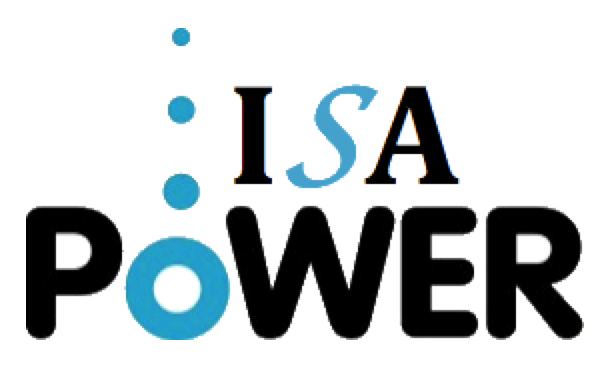Written by Francesca Bas
Hello future mama, you are incredible, and you are doing your best. Simply pressing on this article shows not only how much you want to heal and what a caring mom you will be, but marks the beginning of your recovery. I am so proud of you for seeking support.
Eating disorders are not a choice, they do no discriminate by age, gender, race or pregnancy.
Your struggle is real
Your struggle is valid
You deserve to heal
struggling with an eating disorder during pregnancy is particularly challenging. Often times eating disorders install shame and guilt in individuals suffering. When pregnant these negative feelings get amplified because of the important responsibility we feel of carrying life. This amplified shame can make reaching out for help feel so difficult, but reaching for help is the best thing you can do for you and your baby. Finding a support team who can help you through this difficult time and give you the support you need to not only get by in your pregnancy but be able to enjoy this beautiful stage and find healing within it.
Abstract: Throughout this article we will be going over some key terms regarding eating disorder during pregnancy such as “pregorexia” and “post-partum eating disorder”. Acknowledging some challenges which may occur during a pregnancy with an eating disorder, followed by some nutritional information regarding pregnancy and breast feeding and going through things you can do to feel better supported and seek help.
Background on eating disorders during pregnancy: Pregnancy can be very difficult on the body and mind especially for first time moms, hormones changes, anxiety, and changes to your body shape are just a few of the things which can make pregnancy challenging. Sometimes this can lead to stress and sadness which may amplify disordered thoughts for those previously or currently struggling with an eating disorder. Woman with a history of eating disorder are advised to be closely monitored through pregnancy by a medical professional and psychologist. For more medical information on what biologically happens in a pregnancy with an eating disorder click here.
Acknowledgments: Eating disorders, especially eating disorders during pregnancy are a big taboo in most societies. I want to let you know you are not alone. There are so many women right now who are struggling just the way you are. Before jumping into advice and what to do here are a few terms you may resonate with.
Pregorexia: Pregorexia is a relatively new term used by media to describe the wasn’t to control ones own pregnancy weight through extreme dieting and exercise.
Pregorexia is most common in woman who have struggled with an eating disorder in the past as the physical aspects of pregnancy for some woman can be triggering as some woman experience feeling less control of their body making the want for control trigger eating disorder thoughts. However, pregorexia can also manifest in woman who have never experienced any eating related issues in the past.
Some signs of pregorexia include
Chronic calorie counting
Overexercising
Eating alone or skipping meals
Maintaining pre pregnancy weight purposefully
Excessive preoccupation of body growth, specifically the belly area
Lack of energy
If you see yourself in these symptoms or description, please know you are not alone and there is no reason to be ashamed. The best thing you can do is seek help, perhaps start by talking with someone you trust, your partner, family member, close friend let them support you and help you find some medical professionals who can assist you through this hard time. To find out more about pregorexia click here.
Postpartum eating disorders: After the baby is born not only has your life completely changed but your body is now trying to rebalance and heal. Physically, hormonally and mentally, this leads many woman to feel unbalanced after pregnancy. Nearly 80% of new moms experience the “baby blues”. The baby blues is a temporary 3 day to 14 day feeling of sadness, anxiety, lack of sleep, wordiness and some other unpleasant feelings. This is normal you’ve just created a life and now have this new forever person you will take care of and your body has gone through right about the most challenging thing a body can do. Although baby blues are extremely normal for woman who have previously struggled with eating disorders or any other mental illness the baby blues can bring about some triggering feelings. These feelings can make folks more vulnerable to relapse. Make sure during this time you have a good support system around you and engage in self-care.
Unlike the baby blues “post partem depression” is a more serious issue which needs close paying attention to and requires professional help. Post partem depression consists of similar symptoms of the baby blues but these symptoms are heightened and last longer. If you are struggling with post partem you may find yourself wanting to disattach from your baby, you may have anxiety which prevents you from sleeping and you may begin to experience overwhelming feelings of guilt, fear, anxiety and sadness. If you suspect you may be struggling with postpartum it is essential you speak with a medical prelesional to help guide you through this hard time, bond with your baby and help you get to a place where you start to feel more balance.
Nutrition during pregnancy and breast feeding: When you are pregnant nutrition becomes more important then ever, for you and your babies safety and health.
Importance of nutrition during pregnancy: A baby’s development is very delicate, each month and stage of a pregnancy brings an essential new step to the baby’s growth. The key to insure all these stages are properly met is nutrition. A well-balanced diet for a pregnant woman includes an abundance of carbohydrates, protein, fruits, vegetables, fats and to fulfill all the cravings you and your baby may have. To learn more about nutrition during your pregnancy it is best to seek out professional assistance from a dietitian. If you want to know some more general information regarding nutrition during pregnancy click here (Trigger warning, this medical article suggested contains content which may be triggering to some such as calories)
Importance of nutrition for breastfeeding: A balanced nutrition is essential for you and your baby throughout pregnancy and post pregnancy particularly if you decide to breast feed. .Breast feeding whilst struggling with an eating disorder particularly anorexia may not be the best option for your baby as your breast milk carries fewer of the essential nurturance your neonate will need. When deciding to breastfeed it is important to be assured you are eating in abundance and have the proper nutrition your baby will need.
Neonates born to mothers with eating disorders are more likely to be underweight and have still birth complication. If you were struggling with an eating disorder during or after your pregnancy it is necessary after birth you speak with a health care professional on how to best support your baby’s nutrition.
The importance of reaching out for help / How can I reach out?
Eating disorders can be so hard to talk about, opening up about the struggle is so hard because of all the self shame, the fear of letting go of the eating disorder and because eating disorders are not logical. They are challenging to understand and explain. This is why its essential that you open up in a safe place with a safe person you feel comfortable with, a person you know will try to understand and support you. This could be any loved one or perhaps a doctor, therapist or any other supporter you currently have who you feel safe with. This initial step is hard, extremely hard. But taking this first step will not only mark the beginning step of disatsching from your eating disorder but the beginning of you getting to live your life fully. Recovery will bring you energy, fulfillment, enjoyment, balance and help you bond with your beautiful baby and family. You are so worthy of recovery, you are so worthy of living your life fully not because you’re a mom, a wife, a person with responsibility’s. No, you deserve to heal simply for existing on this earth and because you are you.
Things you can do:
Practice body neutrality
Don’t diet
Give thanks to your body for being able to create this amazing life
And give affirmations/ pledges to yourself. A few example of affirmations could include
I will listen to my body’s needs
I will not measure my worth by a number on the scale
I will treat myself with kindness and respect
I will reach out for support because it is what’s best for me and my baby
Try making a similar list full of affirmations which impower you.
Encouragements: Falling pregnant along with an eating disorder is not easy, however pregnancy can also hold the key to set you free. In order to heal in your pregnancy, It is crucial that in this period you invest time in yourself through self-care, therapy as well as through connecting with your body. During pregnancy you are in some way forced to feel your body more so then ever and in a completely different way, there are little feet that dance in your belly, a powerful heart that beat together with yours and so many changes in your perception of flavors and smells. Making you connect with your body in a completely different way, this different way of feeling your body despite carrying with it some challenges can also carry a new perspective and unexpected key to recovery. These things your body is feeling can make your intuition stronger, the more you follow this intuition the more natural it becomes to follow and the more quite the eating disorder becomes.
Statements from women who have struggled with an eating disorder during pregnancy:
“When pregnant often one feels so much more power because you are literally growing a life inside of you, if that’s not strength then I don’t know what is.” ~ Anonymous
“ I believe pregnancy holds a huge gift for women that are struggling with eating disorders. An opportunity to open the ED prison and flying out of that brutal sneaky cage.” ~ Adriana Caliri
Disclaimer: All information resourced from scholarly articles and personal stories, if you are interested to know more about these resources please feel free to click on the sources listed through the text and in the bibliography.
All pregnancies are so unique, if you see yourself in any of the things spoken about in this article please don’t jump to conclusions on self-diagnosing, rather take it as a sign to seek help from a medical professional.
Sources:





































